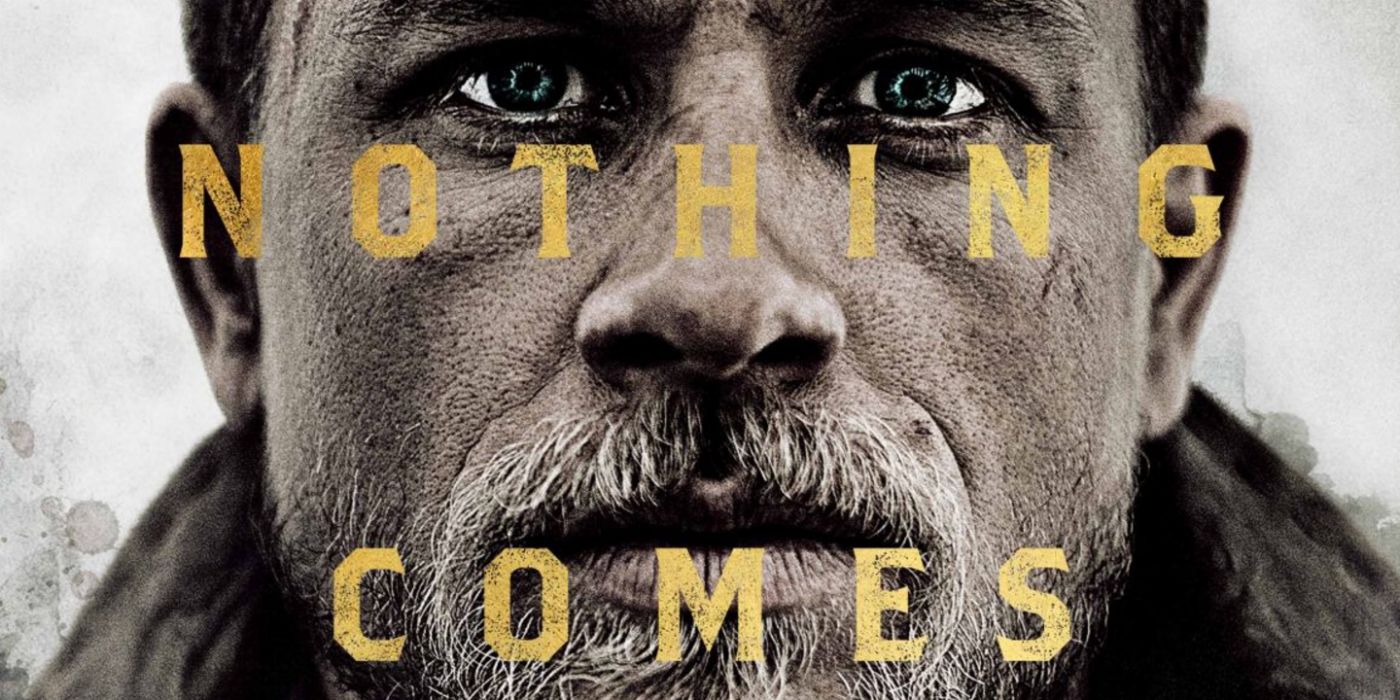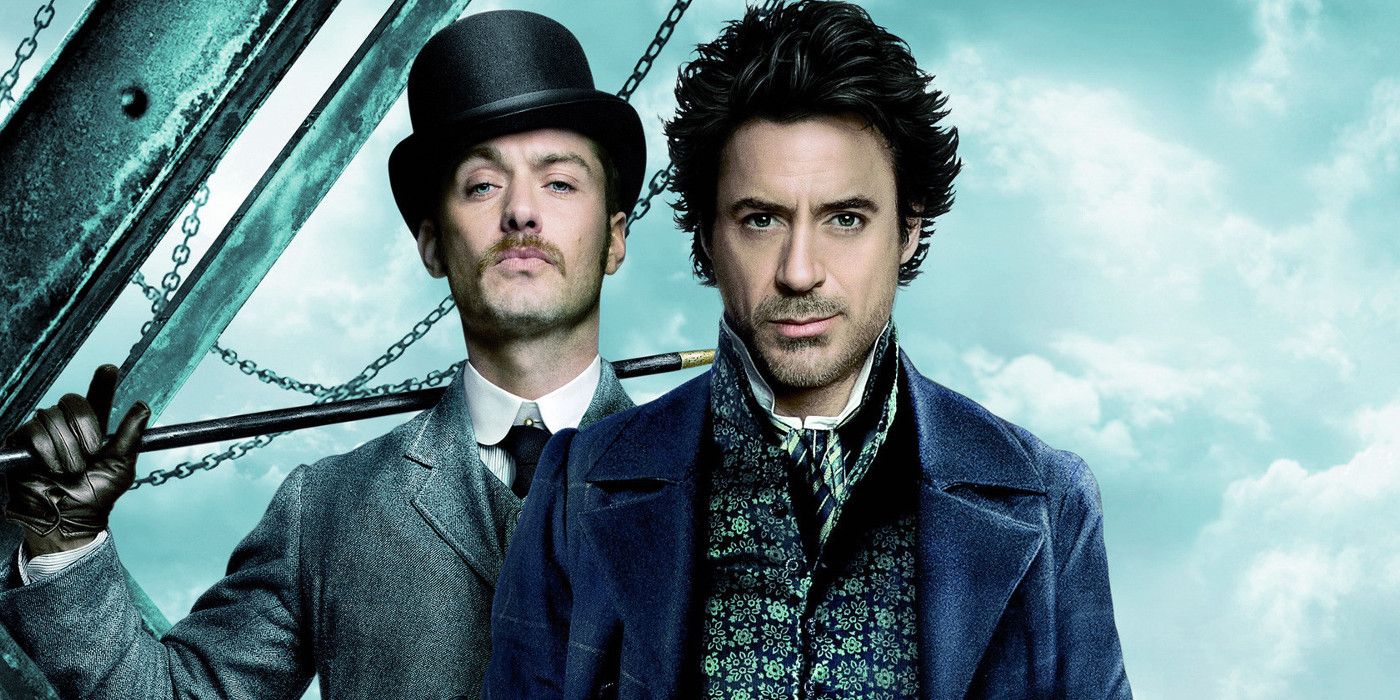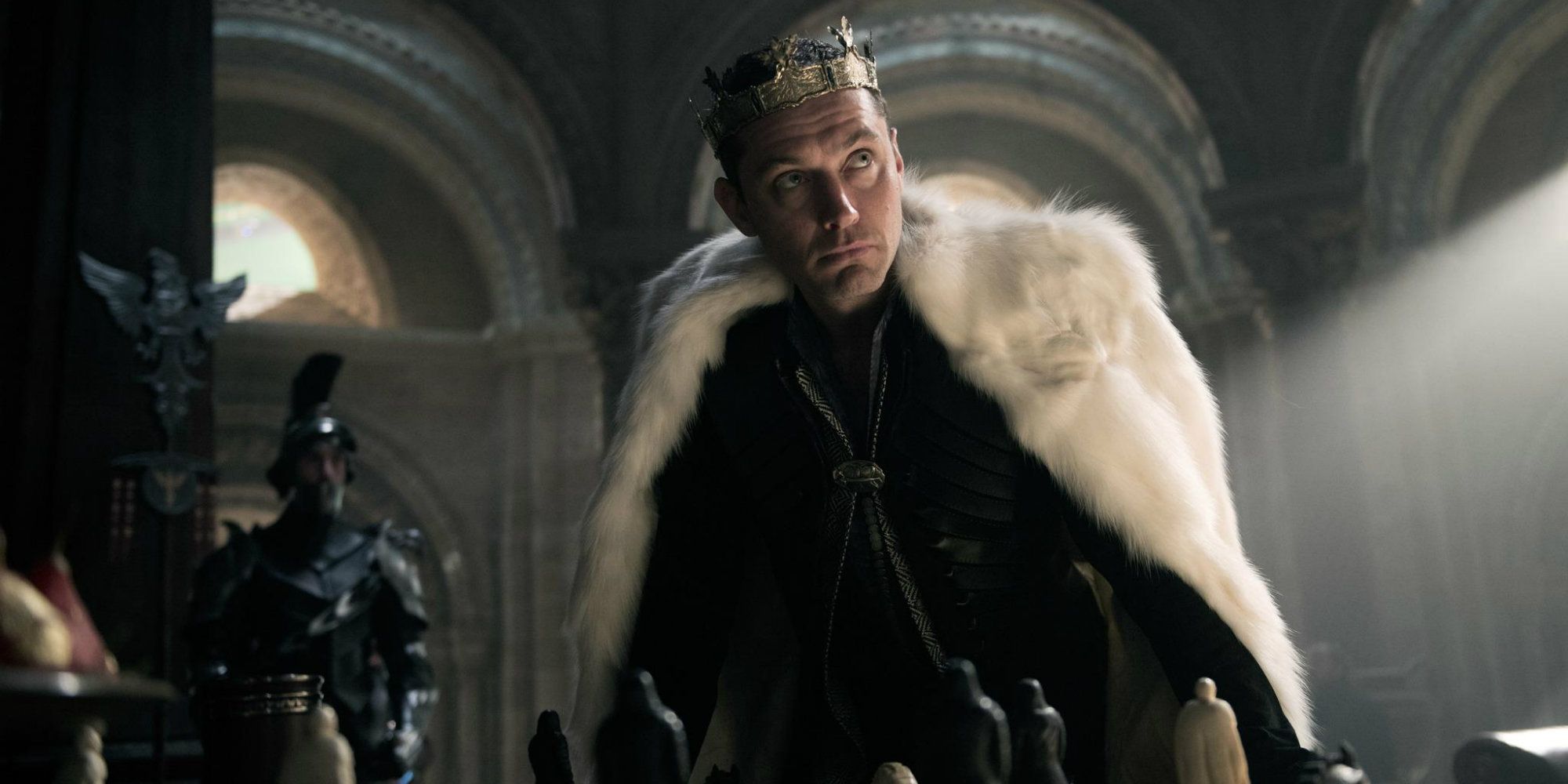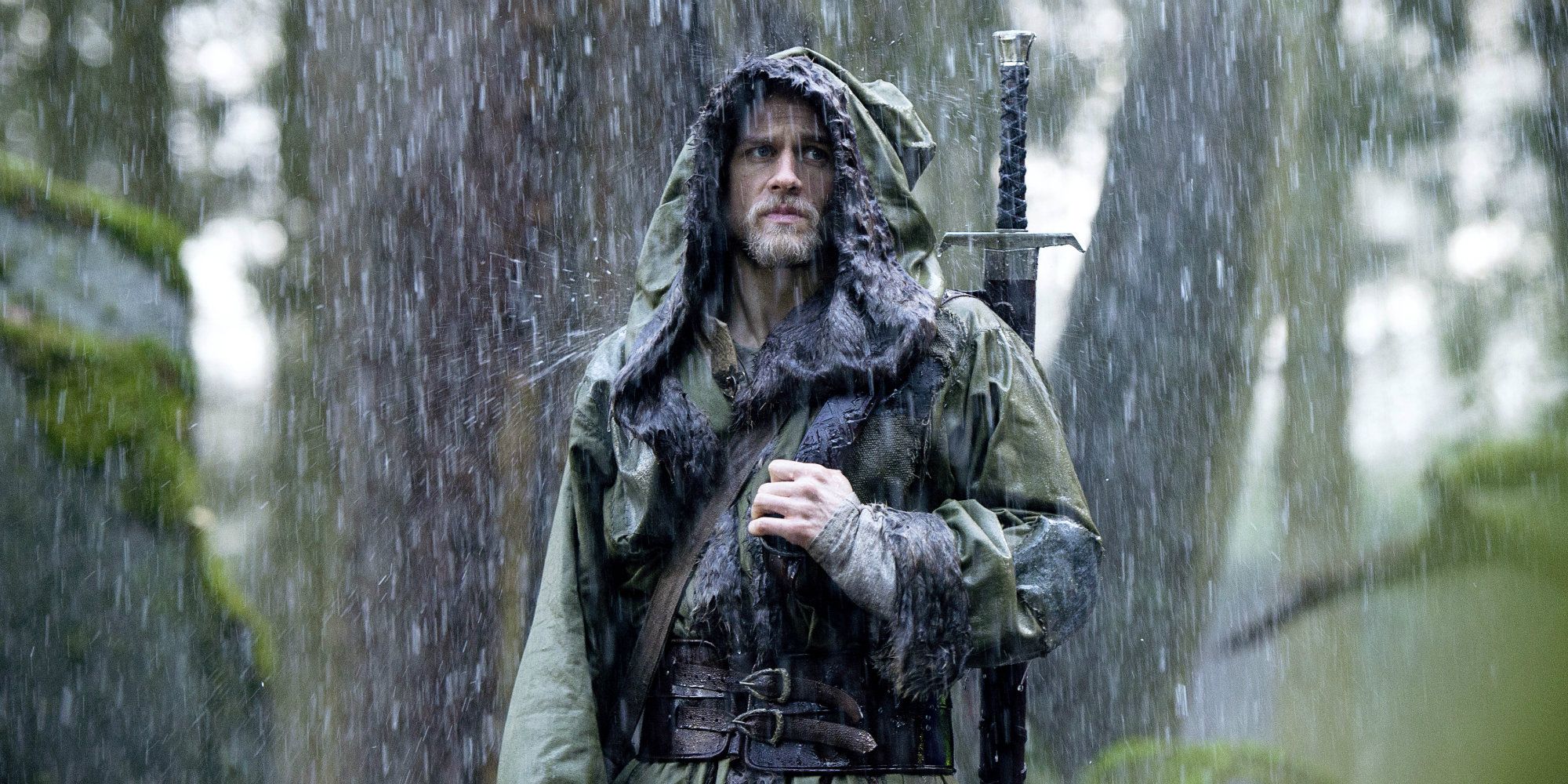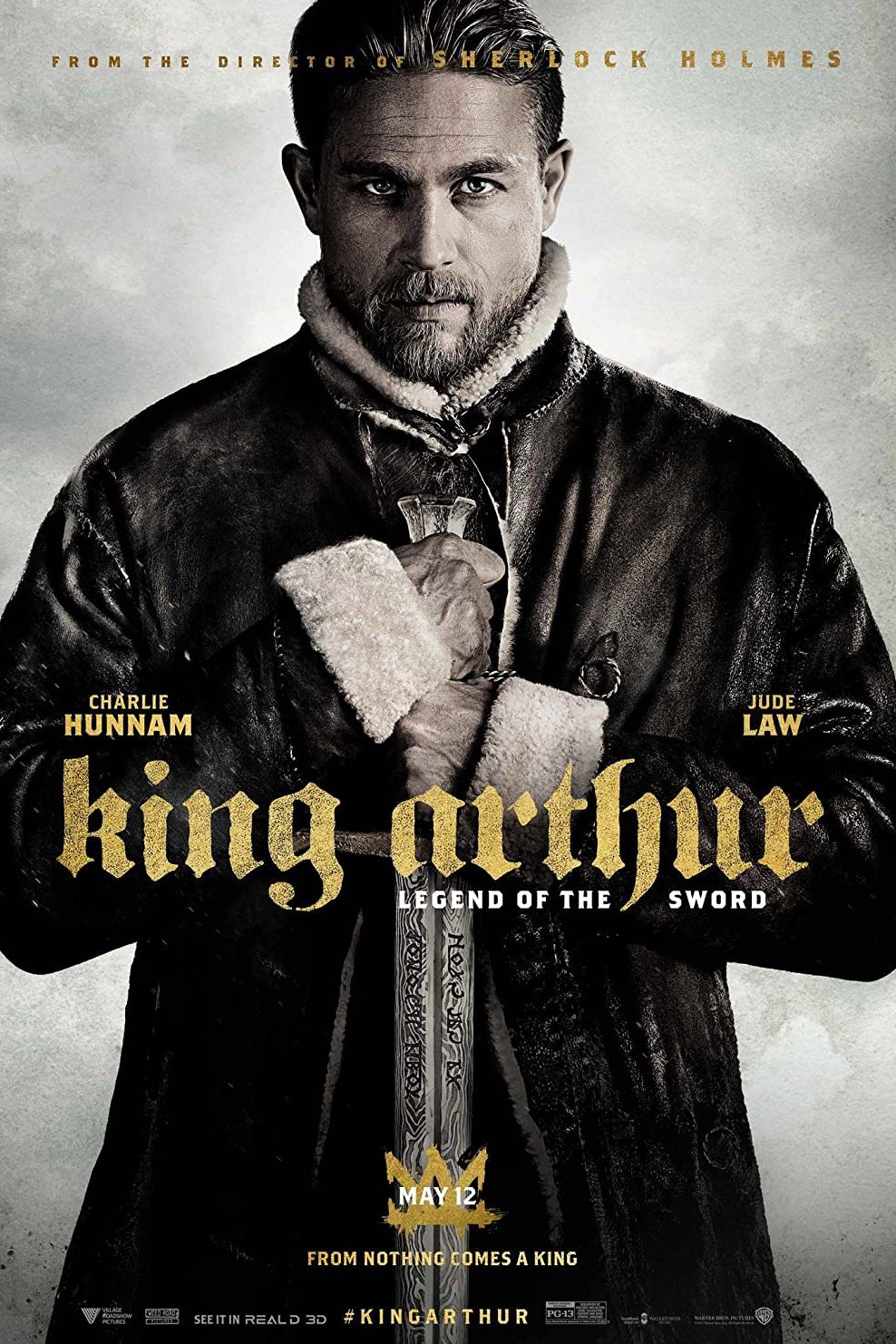There is a moment in King Arthur: Legend of the Sword, when Arthur (Charlie Hunnam), taken prisoner by his usurper uncle King Vortigern (Jude Law), is led to the chopping block for a public execution. Something similar happened this weekend at the box office as King Arthur became the first major flop of 2017. Taking in just $14.7 million at over 3000 screens in North America (with an extra $29.1 million overseas for a worldwide tally of only $43.8 million), director Guy Ritchie's $175 million radical reinvention of the classic King Arthur legend opened even lower than its $25-million early estimates. With a 27% Rotten Tomatoes rating, King Arthur is undeniably a bomb of epic proportions.
The failure of King Arthur must have taken Warner Bros. Pictures by surprise. In late April, the studio held a series of early screenings for King Arthur with an accompanying #KingforaDay hashtag. These screenings were sellouts, with over 30,000 attendees across 200 participating AMC Theaters. AMC originally only planned screenings at 150 theaters, but added another 50 after RSVPs grew beyond expectations. Fans attending the #KingforaDay screenings were treated to free limited-edition baseball caps and posters, and advance buzz for King Arthur seemed to be positive. That general audiences did not turn out for King Arthur, despite a massive marketing campaign, no doubt leaves the brain trust at Warner Bros. scrambling for an explanation for this embarrassing rout at the box office.
Some blame will certainly be placed at the feet of Guy Ritchie. King Arthur is a Guy Ritchie film through and through; instead of a grand and lusty medieval jaunt of sword, sorcery, and chivalry, Legend of the Sword is told from the point of view of the British commoners - among whom Arthur, who was raised in a brothel in Londinium, identifies himself as much more than the royalty that is his true birthright. Under Ritchie's auspices, this King Arthur doesn't command the noble Knights of the Round Table. Instead Arthur heads a band of back alley ruffians in spurring the common folk towards a revolution against the Crown. Ritchie's King Arthur hews much more closely to his hyperkinetic early hits like Lock, Stock and Two Smoking Barrels and Snatch than Excalibur.
Ritchie has had difficulty finding a new franchise to match the success he found in 2009 with Sherlock Holmes and its sequel, 2011's Sherlock Holmes: A Game of Shadows. The two Holmes films together grossed nearly a billion dollars globally at the box office. Ritchie's subsequent attempt to launch another franchise, 2015's The Man From U.N.C.L.E. starring Henry Cavill, grossed only $108 million. Of course, with Sherlock Holmes, Ritchie had the benefit of Robert Downey, Jr. starring as the Great Detective. Downey was coming off 2008's mega blockbuster Iron Man, which launched the Marvel Cinematic Universe and minted Downey as one of the biggest movie stars in the world.
By contrast, King Arthur stars Charlie Hunnam, best known for headlining the FX cult television series Sons of Anarchy. Hunnam's biggest box office claim to fame is 2013's Pacific Rim, but it can be argued the success of Pacific Rim is due to director Guillermo Del Toro and the appeal of knock-em, sock-em giant robots vs. kaiju monsters. Hunnam was replaced by Star Wars' John Boyega in Pacific Rim's sequel. Though a fine actor who has garnered strong notices for his concurrent movie in theaters, the critically acclaimed The Lost City of Z, Hunnam simply isn't an established draw as a movie star.
Next Page: [valnet-url-page page=2 paginated=0 text='Bad%20Timing']
King Arthur's release date had been shifted around before Warner Bros. settled on the weekend of May 12th, 2017, and that has turned out to be a huge mistake. Only one week prior, one of the most anticipated superhero movies of the year, James Gunn's crowd-pleasing Guardians of the Galaxy Vol. 2, opened to a massive $145-million in North America. Vol. 2 easily held onto first place in its second weekend with another $66 million tallied. Guardians' success was not a rising tide that lifted all boats. King Arthur roused very little competitive interest and it simply had no chance against Guardians. An August premiere date, against considerably less summer blockbuster competition, may have allowed King Arthur to fare better (though admittedly, an August release didn't do much to buoy The Man From U.N.C.L.E. two summers ago).
Looking at how similar recent projects have fared with movie audiences, it seems clear that certain stories and characters in the public domain, though regarded as classics, simply hold no interest for most movie-goers. King Arthur falls in the same category as Robin Hood and Peter Pan - all of which have been the subjects of multiple movies and projects that have ultimately garnered a feeling of being done to death. Big budget Peter Pan films like P.J. Hogan's 2003 Peter Pan and Joe Wright's 2015 Pan met with box office failure; even the NBC live musical Peter Pan starring Girls' Allison Williams underperformed in the ratings. Robin Hood has been even more ubiquitous - having been adapted dozens of times in movies and television - and has met with mixed results. The most recent major Hollywood Robin Hood project, Ridley Scott's 2010 Robin Hood starring Russell Crowe, achieved only modest box office success, though more Robin Hood films are in various stages of development.
King Arthur's fortunes in finding an audience in movies or television have been perilous. John Boorman's 1981 epic Excalibur is the gold standard by which all modern King Arthur movies are judged. 1995's First Knight starring Sean Connery as Arthur and Richard Gere as Lancelot and Antoine Fuqua's 2004 King Arthur starring Clive Owen as Arthur and Keira Knightley as Guinevere fizzled. Camelot on Starz starring Eva Green, itself as radical a reinvention of the King Arthur legend as Guy Ritchie's take, only lasted one season. However, BBC's Merlin did succeed for a well-received four seasons. Still, as well known as the story of King Arthur remains, widespread interest in seeing his adventures depicted on screen simply isn't there.
Was Guy Ritchie's version of King Arthur just too different to catch on? The core fans of King Arthur maintain a certain set of expectations for adaptations of that enduring story. Fans expect to see the classic tropes: a tragic romantic triangle between Arthur, Guinevere, and Lancelot; the quest for the Holy Grail; and the magic mentoring of Merlin - all of which Ritchie totally excised from Legend of the Sword. Upon learning this, many Arthur fans simply chose to stay away. Presumably, the classic Arthurian tropes were being saved for the planned sequels, as a six-film cycle of Ritchie's reboot of Camelot was in the works before this weekend's results ended the cinematic future for Charlie Hunnam's Arthur. For anyone else not invested in the classic rendition of King Arthur, Hunnam's leather pants-clad Born King just didn't inflame any great desire to see him wrest Camelot from Jude Law wearing black royal armor. Meanwhile, the subtitle "Legend of the Sword" is as generic and uninspiring as a movie title can get.
However, resurrection is King Arthur's stock and trade. As Guy Ritchie's reboot of King Arthur quickly fades into cinematic obscurity, the Once and Future King will no doubt rise again when the next filmmaker inevitably decides the time is right for King Arthur to pull sword from stone once more. Perhaps next time, Camelot will finally rise to the box office glory that has remained so elusive for King Arthur and the Knights of the Round Table.

